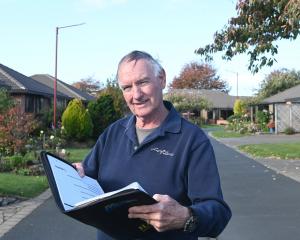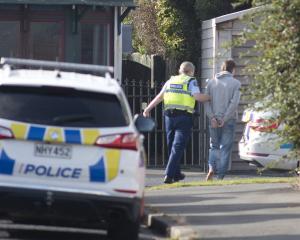It was the first conviction under the Resource Management Act for the company, which has 88 KFC, Starbucks and Pizza Hut outlets throughout the country.
On October 8 last year, the grease trap at KFC's Kaikorai Valley outlet discharged fats and oils into the car park. These drained to a sump, then flowed into a gutter and into the Kaikorai Stream, the Dunedin District Court heard yesterday.
A customer alerted staff to the spill on the Saturday night but no action was taken.
On the Monday, the grease trap was pumped out.
The SPCA rang the Otago Regional Council on the Tuesday to advise ORC staff ducks in the stream had been covered with oil.
The next day, a regional council staff member saw a film of oil on the water for about 110m.
Close to KFC, mats of fat and oil were found.
A KFC regional manager was advised, who ordered the outlet cleaned and engaged contractors to remove the worst of the fat and oil from the stream.
Fish and Game destroyed two ducks affected by oil from the discharge and the SPCA cleaned and cared for four ducks for eight days.
Oil in water also caused oxygen stress, with the potential for asphyxiation of fish and macroinvertebrates.
As a result, the Otago Regional Council charged Restaurant Brands with discharging contaminants in circumstances in which they might enter water.
The charge has a maximum penalty of $600,000.
Council counsel Alastair Logan said it took two and a-half days for the company to clean up the site, an aggravating factor and which led to further run-off of oil and fat to the stream.
The problem was not addressed until the incident was taken to a higher management level, Mr Logan said.
He suggested the fine should start at $40,000 but did not believe it should be uplifted due to the size of the company, as it had taken all appropriate steps to prevent further offending.
Restaurant Brands counsel Mark Davies said the exact cause and location of the blockage remained unknown.
Restaurant Brands admitted it "should have dealt with this earlier and better", Mr Davies said.
The company had not had an incident like this before and all its outlets' waste management systems were compliant and fully maintained, he said.
Since the incident, the company had reviewed maintenance of its waste disposal systems, sent out a national memorandum and at the Kaikorai outlet had installed a bund, put up warning notices and spoken to staff to ensure the incident remained an isolated one, he said.
The company had done its best to make amends for the incident, paying the costs of Fish and Game, the SPCA and donating $500 to each. It also paid the costs incurred by the council.
Environment Court judge Laurie Newhook accepted the company's consultant ecologist's finding that the stream was not of high quality, but noted the stream supported a notable level of exotic and natural fauna.
He accepted the company had undertaken steps to ensure it did not happen again and had shown willingness to provide environmental compensation.
An appropriate starting point for a fine was $30,000 but he gave a 25% discount for an early guilty plea, and a further 25% for the company's incident response.
Restaurant Brands was convicted and fined $15,000 and ordered to pay court costs $132.89, solicitors fees $113, disbursement $110.48.
Ninety percent of the fine would go to the regional council.












